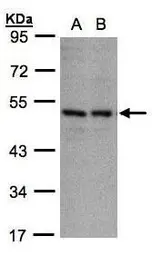KIR3DL1 antibody
Cat. No. GTX106239
Cat. No. GTX106239
-
HostRabbit
-
ClonalityPolyclonal
-
IsotypeIgG
-
ApplicationsWB
-
ReactivityHuman
